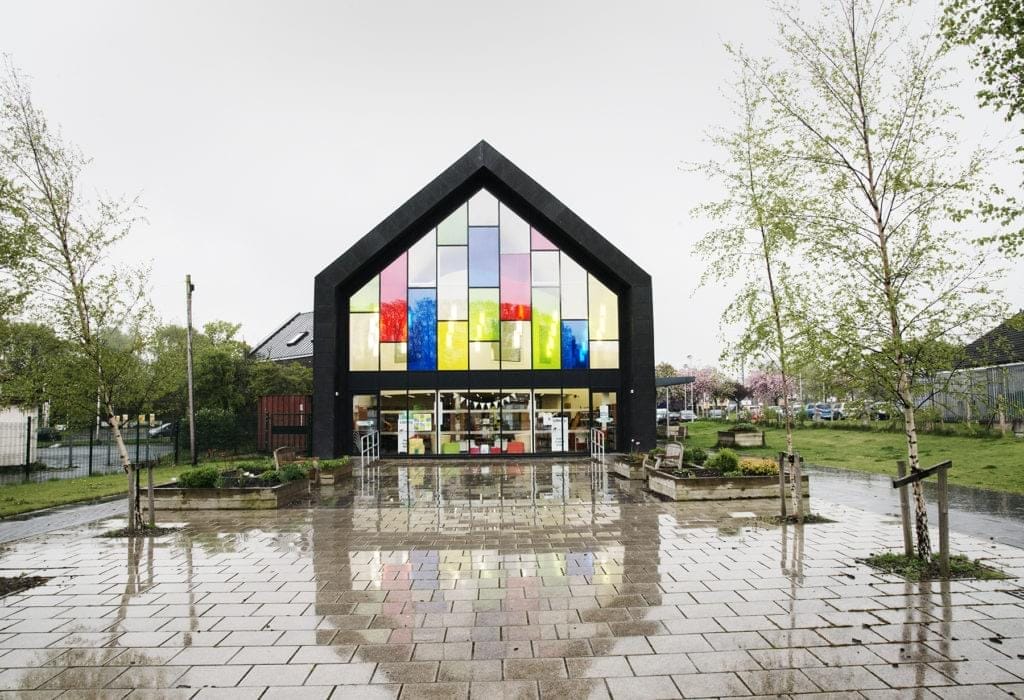11th October 2019, words by Joe Doran
Over the past 18 months or so, Lankelly Chase has been trying to take a closer look at power. Trying and succeeding at points and failing at others – if there is one thing we’ve learned about power it’s that it’s slippery and elusive as a concept and even more so in practice, like trying to carry a cube of congealing custard in your hands. Partly, the inquiry began as a way to explore with our partners and others some of the hidden edifaces they were bumping into as they navigated the systems they were trying to change.
Like a city submerged, there seemed to be an unseen infrastructure that governed the visible ripples on the surface, dictating flow and defining an entire ecosystem. Our partners and colleagues had begun to say things like “This is all about power- you should inquire into it” and “If we can sort the power dynamics out everything else will follow”. And at the same time it was also important for us to try to understand what power meant for us as an independent foundation; how that manifested itself in both our work and relationships; and what we needed to change to better embody our systems behaviours https://lankellychase.org.uk/our-approach/system-behaviours/
None of us are separate from the systems we’re trying to change and as such we are all players in a rigged game – sometimes we are the house and sometimes we are the mark but we are all, always, involved.
Eighteen months ago, when we articulated that we would be working on an inquiry into power, we worked with our learning partner, the incredible Nusrat Faizullah from www.costrata.org , to thrash out our own starting assumptions about power, what it was and what it meant to us. The process of challenging assumptions that was built into that day has continued throughout the inquiry- it’s one of the defining characteristics of it. So much so that whenever I’m a little stuck or anxious with the work I often find it’s because I haven’t shone a light on my assumptions and challenged them. After figuring out how wildly differing our perceptions on power were, we worked on a number of experiments with people around the country (some of whom we knew, some of whom we didn’t) to try to understand other people’s views on power. We named these experiments mini change projects. Some of these projects we co-designed and co-delivered and with some we were completely hands off. The insights gained from that experimentation period defined the trajectory and focus of the inquiry. Among many examples, we were led by the great people at Expert Citizens in Stoke in a workshop about personal power; we danced through a deep democracy debate with some unsuspecting but enthusiastic foundations at the ACF conference; we were blown away by the relationship practitioner that used games and theatre in a school in Bristol to surface aspects of the inquiry that made us feel incredibly two-dimensional and stupid; we joined squillions of conversations about power with everyone we could and encouraged other people to have conversations where power was explicitly named.
The more comfortable we became in talking about power, the more people wanted to talk to us about it. Or so it seemed. What is more likely is that by being honest about a role we play within some systems, and exposing our discomfort and uncertainty, we turned on a receptor in ourselves. Now we could hear a bandwidth that was previously unavailable to us. And the broadcasters now knew we were listening.
That is not to say we are completely comfortable talking about power- it’s still foggy and capricious and has been subject to millennia of misappropriation- but also because it is a fundamentally discomforting subject.
It’s easy to say that power is a product of relationships and that it is not binary and that it is fluid. It’s easy to say that and I believe it. But it’s very hard to stand behind such abstract and hollow platitudes when you’re speaking to someone who has been assessed to be capable of work and is being sanctioned for nonattendance of interviews (that they couldn’t get to between treatment for cancer and caring for their mother who had dementia). The banality and privilege of being able to say that power is fluid is a lot harder to justify to an individual who confronts the instruments of policy- at that point, surely, power is mechanistic. Or at least manifests itself as such. And if that’s the case what’s the difference in perception and reality?
These activities led us to concentrate our efforts on how to amplify and support collective or community power. We followed the inquiry down the fascinating and exciting rabbit hole of participatory methodologies, which we are exploring firstly through participatory grantmaking (or Party Granty which sounds much better). This form of democratised resource reallocation really tickles our collective pickles- it puts the decision making firmly in the bailiwick of the communities we are working with; it encourages and lives many of our systems behaviours and; it allows communities to step into their power and create systemic change. Alongside this, we’ve been looking at governance- are there governance structures that encourage the systems behaviours to flourish and challenging existing power structures? Who needs to be involved in them, where does accountability lie, is there such a thing as effective governance in complex systems? We think that effective and relevant governance structures could have a transformative effect allowing people the genuine space to own, deliver and set the parameters of work that is so often done to them or on behalf of them. We have arrived at these staging posts on the dusty and unpaved road of the power inquiry and as such I think our time exploring them will be different than if we had alighted here having journeyed via a different route. How we conduct ourselves, what we pay attention to, how we engage, what we think is achievable together… all of these, and more, will be different because of how we’ve been led to this point.
I have a luxurious view on power.
That’s the best insult I’ve ever received (at least it’s the best one with no swearing). It shut me up. It changed the dynamic. It won the battle (if there was one). It showed the use of power by someone that had three seconds previously claimed to have none (which made the point about power fluidity much better than I could have done). It’s also a phrase that has stuck with me. My view on power is luxurious. It’s also mine. And it’s also part of the reason we could no longer inquire into power in this way- any conversation about power is incredibly subjective or seeks to codify and ratify what it is/means/does.
In effect, this means that we have closed our inquiry into power. We don’t know everything about power and we haven’t revealed the power dynamics to the systems we are part of. We do have some tangible and clear paths of inquiry to follow- namely systemic and alternative governance and participatory methodologies. We are really lucky in that we continue to work with incredibly awesome partners and, though the power inquiry in its previous guise has ended, those relationships will strengthen. It’s essentially the inquiry formerly known as power. Perhaps soon to be symbol. And then power again. I’ve learnt that’s the nature of inquiries and mercurial pop stars but that’s because I have a luxurious view on power.


Comments (0)